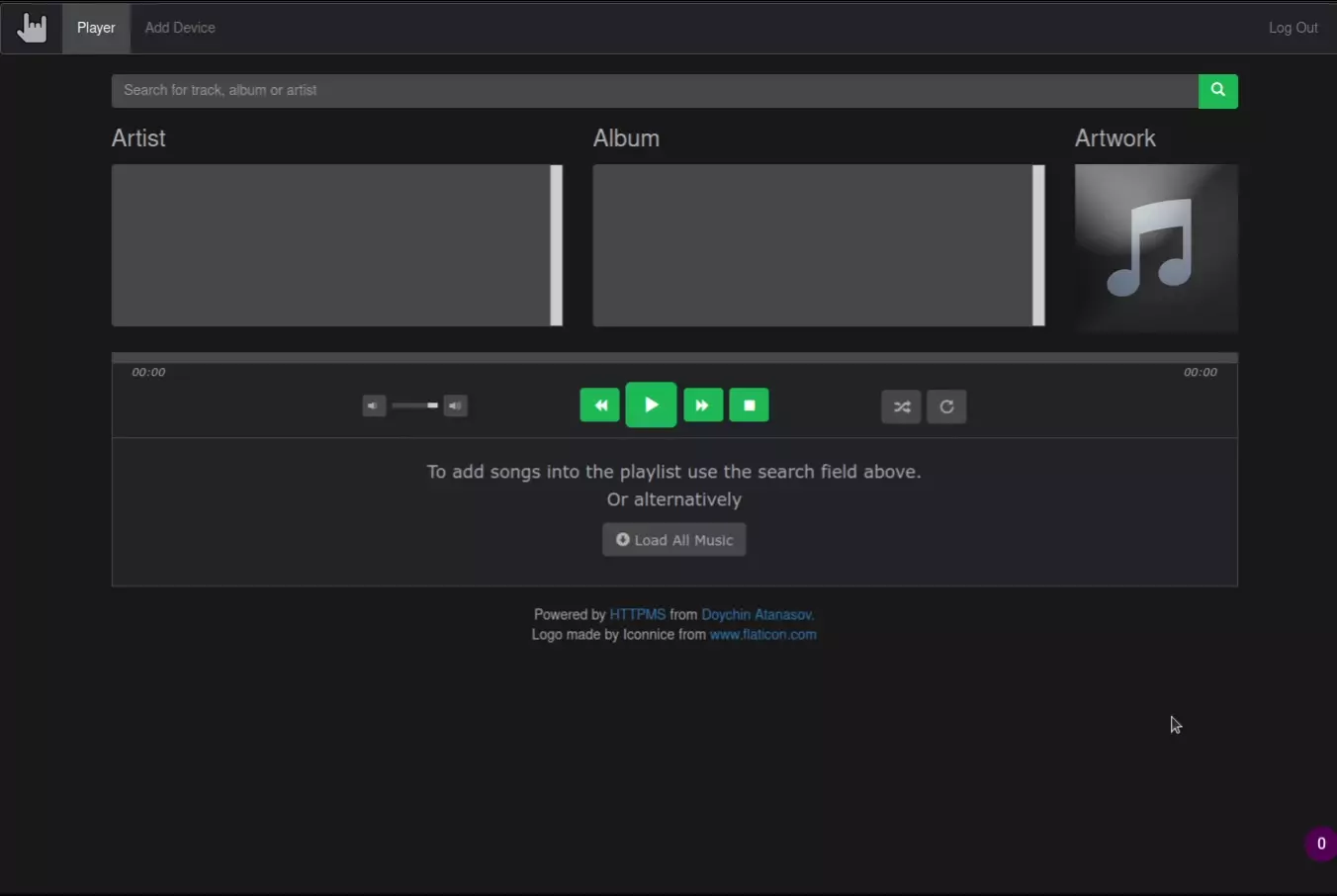Mix
Sequence-based Go-native audio mixer for music apps
See demo/demo.go:
package main
import (
"fmt"
"os"
"time"
"github.com/go-mix/mix"
"github.com/go-mix/mix/bind"
)
var (
sampleHz = float64(48000)
spec = bind.AudioSpec{
Freq: sampleHz,
Format: bind.AudioF32,
Channels: 2,
}
bpm = 120
step = time.Minute / time.Duration(bpm*4)
loops = 16
prefix = "sound/808/"
kick1 = "kick1.wav"
kick2 = "kick2.wav"
marac = "maracas.wav"
snare = "snare.wav"
hitom = "hightom.wav"
clhat = "cl_hihat.wav"
pattern = []string{
kick2,
marac,
clhat,
marac,
snare,
marac,
clhat,
kick2,
marac,
marac,
hitom,
marac,
snare,
kick1,
clhat,
marac,
}
)
func main() {
defer mix.Teardown()
mix.Debug(true)
mix.Configure(spec)
mix.SetSoundsPath(prefix)
mix.StartAt(time.Now().Add(1 * time.Second))
t := 2 * time.Second // padding before music
for n := 0; n < loops; n++ {
for s := 0; s < len(pattern); s++ {
mix.SetFire(pattern[s], t+time.Duration(s)*step, 0, 1.0, 0)
}
t += time.Duration(len(pattern)) * step
}
fmt.Printf("Mix, pid:%v, spec:%v\n", os.Getpid(), spec)
for mix.FireCount() > 0 {
time.Sleep(1 * time.Second)
}
}
Play this Demo from the root of the project, with no actual audio playback:
make demo
Or export WAV via stdout > demo/output.wav:
make demo.wav
Credit
What?
Game audio mixers are designed to play audio spontaneously, but when the timing is known in advance (e.g. sequence-based music apps) there is a demand for much greater accuracy in playback timing.
Read the API documentation at godoc.org/github.com/go-mix/mix
Mix seeks to solve the problem of audio mixing for the purpose of the playback of sequences where audio files and their playback timing is known in advance.
Mix stores and mixes audio in native Go []float64 and natively implements Paul Vögler's "Loudness Normalization by Logarithmic Dynamic Range Compression" (details below)
Best efforts will be made to preserve each API version in a release tag that can be parsed, e.g. github.com/go-mix/mix
Why?
Even after selecting a hardware interface library such as PortAudio or C++ SDL 2.0, there remains a critical design problem to be solved.
This design is a music application mixer. Most available options are geared towards Game development.
Game audio mixers offer playback timing accuracy +/- 2 milliseconds. But that's totally unacceptable for music, specifically sequence-based sample playback.
The design pattern particular to Game design is that the timing of the audio is not know in advance- the timing that really matters is that which is assembled in near-real-time in response to user interaction.
In the field of Music development, often the timing is known in advance, e.g. a sequencer, the composition of music by specifying exactly how, when and which audio files will be played relative to the beginning of playback.
Ergo, mix seeks to solve the problem of audio mixing for the purpose of the playback of sequences where audio files and their playback timing is known in advance. It seeks to do this with the absolute minimal logical overhead on top of the audio interface.
Mix takes maximum advantage of Go by storing and mixing audio in native Go []float64 and natively implementing Paul Vögler's "Loudness Normalization by Logarithmic Dynamic Range Compression"
Time
To the Mix API, time is specified as a time.Duration-since-epoch, where the epoch is the moment that mix.Start() was called.
Internally, time is tracked as samples-since-epoch at the master out playback frequency (e.g. 48000 Hz). This is most efficient because source audio is pre-converted to the master out playback frequency, and all audio maths are performed in terms of samples.
The Mixing Algorithm
Inspired by the theory paper "Mixing two digital audio streams with on the fly Loudness Normalization by Logarithmic Dynamic Range Compression" by Paul Vögler, 2012-04-20. A .PDF has been included here, from the paper originally published here.
Usage
There's a demo implementation of mix included in the demo/ folder in this repository. Run it using the defaults:
cd demo && go get && go run demo.go
Or specify options, e.g. using WAV bytes to stdout for playback (piped to system native aplay)
go run demo.go --out wav | aplay
To show the help screen:
go run demo.go --help




